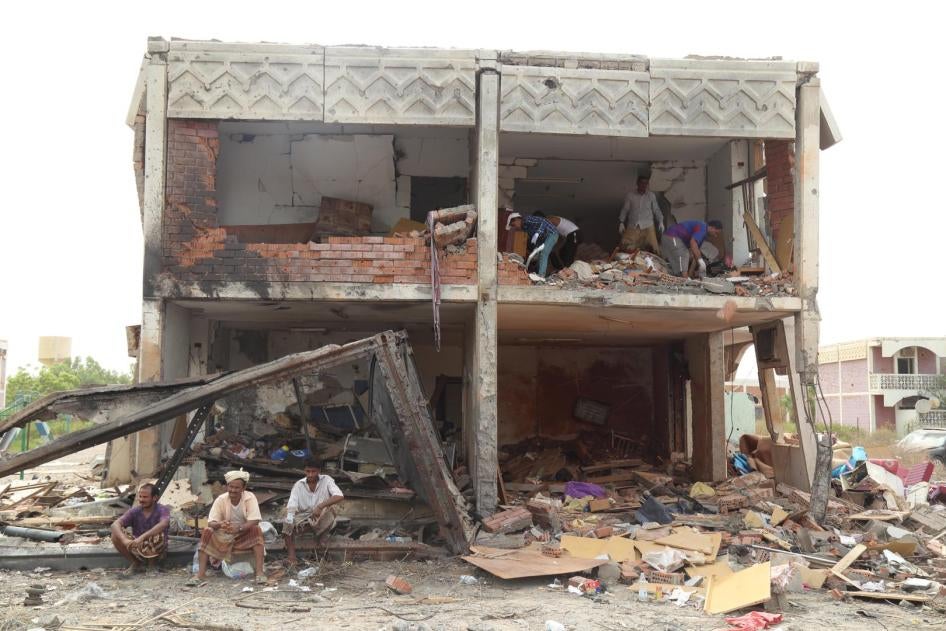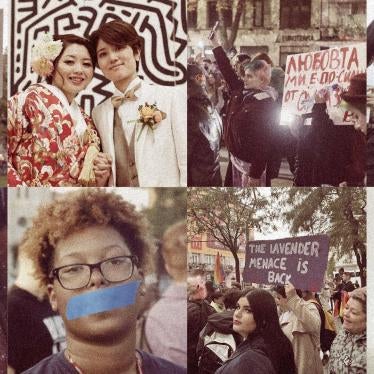(Geneva) – The United Nations Human Rights Council should create a commission of inquiry to investigate alleged serious laws-of-war violations by all parties in Yemen since September 2014, Human Rights Watch and 22 other human rights and humanitarian organizations said today.
Since the Saudi Arabia-led international military coalition began operations in Yemen in March 2015, nearly 2,000 civilians have been killed, the majority from coalition airstrikes, according to figures released by the Office of the UN High Commissioner for Human Rights. Pro-Houthi forces have also repeatedly fired mortar shells and rockets indiscriminately into populated areas.
“The allegations of indiscriminate and other unlawful attacks killing civilians in Yemen raise questions that can only be answered through an international investigation,” said Philippe Dam, Geneva deputy director. “By shining a light on laws-of-war violations by all parties, the Human Rights Council can deter further abuses and help provide justice for the victims.”
The UN high commissioner for human rights, Zeid Ra’ad Al Hussein, called in April for “all sides to the conflict in Yemen to ensure that attacks resulting in civilian casualties are promptly investigated.” Four months later, there is still no indication that an investigation has begun into allegations of laws-of-war violations by the parties to the conflict.
The coalition-imposed blockade has had a severe impact on Yemen’s civilians. According to the UN, 21 million Yemenis – a staggering 80 percent of the population – need assistance and half the population is facing food insecurity. More than 15.2 million people lack access to basic health care, and over 20 million lack access to safe water. With commercial imports accounting for 90 percent of Yemen’s food and fuel supplies, the coalition-imposed blockade may amount to starvation of civilians as a method of warfare, a war crime.
The coalition has used cluster munitions, banned by 117 states, in civilian-populated areas in Yemen, wounding and killing civilians.
Non-state armed groups have repeatedly violated the medical neutrality of healthcare centers and healthcare and aid workers.
The Human Rights Council has adopted several resolutions on Yemen since 2011, but none since the Saudi-led coalition’s airstrike campaign began. The next session of the Human Rights Council is scheduled for September 14 to October 2. Morocco, Qatar, Saudi Arabia, and the United Arab Emirates, members of the international military coalition operating in Yemen, are also among the 47 members of the Human Rights Council, as well as the United Kingdom and the United States, which provide support to the coalition.
“Remaining silent in the face of the serious human rights and laws-of-war violations being committed in Yemen shouldn’t be an option for the UN’s foremost human rights body, or for council members such as the United States and the United Kingdom that support the Saudi-led coalition,” Dam said. “The Human Rights Council should honor their responsibility to the people of Yemen by immediately creating a credible mechanism to investigate the abuses being committed by all parties.”










